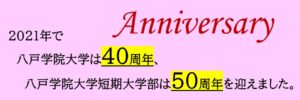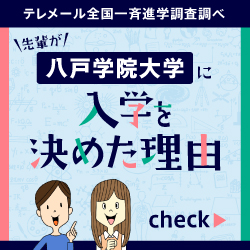Curriculum
- 1st year (1st and 2nd semester) Students learn the basics of regional management science broadly and clearly.
- In the 2nd year (3rd and 4th semester), practical applications of the subjects is introduced leading to professional learning.
- In the 3rd year (5th and 6th semester), preparation for career decisions and efforts towards the graduation thesis begin.
- In the 4th year (7th and 8th semester), students finish the graduation thesis.
※ The curriculum is subject to change.
* From the curriculum table of Heisei 30 fiscal year
Liberal Arts
In order to cultivate comprehensive thinking ability, judgment ability, problem-solving ability and in order to “cultivate a broad and deep culture and comprehensive judgment and cultivate rich human nature”, specialized education subjects are provided, mainly in the second year.
Introductory Education
Religious Studies, Introduction to Christianity, Regional Culturology, Basic Seminar, Presentation, Information Processing, Japanese Literacy, Japanese Expression Literacy
Learning a Foreign Language
English(Ⅰ / Ⅱ), English Communication, TOEIC(Ⅰ / Ⅱ), German, German Communication
Developing as a Person
Philosophy, Art, Design, Introduction to Psychology, Behavioral Science
Learning about Society
History, The Constitution of Japan, Political Science, Sociology, International Relations, Foreign Affairs
Learning about Nature and Science
Introduction to Natural Sciences, Mathematics, Sports Science
Specialized Subjects
Career Training Subjects
Career Design(Ⅰ~Ⅷ)
Compulsory Subjects
Business Administration, Introduction to Economics, Introduction to Jurisprudence, Bookkeeping Ⅰ, Principles of Accounting, Computer Science, Research Seminar(Ⅰ~Ⅵ)
Key Subjects / Regional Management Area
Business History, Introduction to Finance, Human Resource Management, Regional Management, Japanese Economy, Civil Law Ⅰ, Civil Society Theory
Key Subjects / Information / Accounting Area
Bookkeeping Ⅱ, Intermediate Bookkeeping, Industrial Bookkeeping, Theory of Financial Statements, Internet Studies, Statistics, Data Analysis for Computing
Elective Optional Subjects / Regional Management Area
Management Theories, Business Strategy, Management Information, Management Sciences, Small, Medium and Venture Enterprises , Financial Economics, General Insurance Theory, Labor Issues, Regional Innovation Management, Marketing, Regional Marketing, Consumer Behavior, Regional Industries, Introduction to Agriculture, Agricultural Economics, Farm Management, Food Economics, Fisheries Economics, Distribution Economics, Regional Activation and Revival, Microeconomics, Public Economics, Macroeconomics, Theory of Economic Policy, Public finance, Local Public Finance, Civil Law Ⅱ, Commercial Law, Administrative Law, Regional and Community Studies
Elective Optional Subjects / Information / Accounting Area
Cost Accounting, Advanced Bookkeeping, Management Accounting, Auditing, Tax Accounting, Business Analysis, Public Accounting, Information Society Studies, Database Design, Database Practicum, Information System Design, Information System Development, Programming, Application Development Practicum(Ⅰ / Ⅱ), Design, Design Practicum, Multimedia Systems, Computer Graphics, Information and Occupation, Vocational Guidance
Common Elective Optional Subjects
English for Professionals, Internship, Special Lecture in Regional Management(Ⅰ~Ⅲ)
Teacher Education Curriculum
Students can acquire a teacher’s license at graduation by acquiring the number of credits required for graduation and acquiring specialized subjects related to teaching professionals and credits required to obtain the license certificate award.
<Type of license that can be acquired>
High school teacher type of license (Commercial), high school teacher type of license (Information)
Subjects for Teaching Profession
Introduction to Education Profession, Principles of Education, Educational Psychology, Educational Administration, Educational Curriculum, Methods of Teaching Commerce(A / B), Methods of Teaching Information Science(A / B), Theory of Extracurricular Activities, Educational Methods, Theory of Student Guidance, Education Counseling, Education Practicum A, Seminar in Teacher Training












